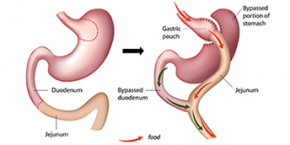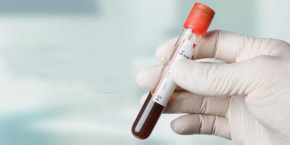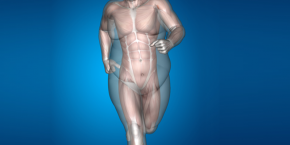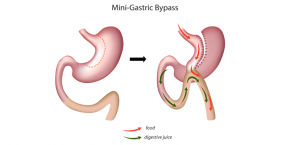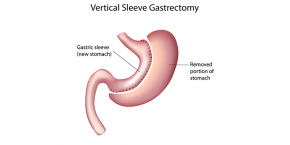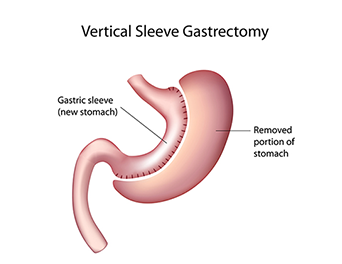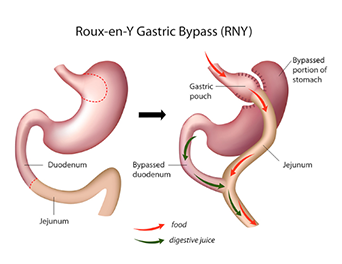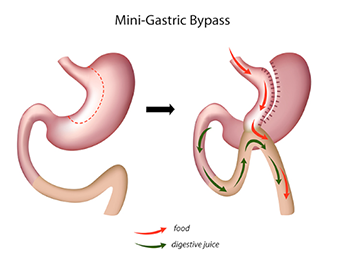All about Sleeve Gastrectomy..

Sleeve gastrectomy can be applied as a standalone surgery. The side part of stomach is removed while leaving a narrow tube. It also removes ghrelin (hunger hormone). After the operation, the patients feel full after eating a small amount of meal. It doesn’t cause malabsorption and patients don’t need life time vitamin and mineral supplements. It is technically simpler and causes less long-term complications.
Gastric bypass is a much more invasive procedure. In this surgery, the stomach is made smaller, and part of small intestine is bypassed. Like sleeve gastrectomy, the patients feel full after eating small amount of meal. It causes malabsorption due to bypass of small intestine. It may be more effective due to this malabsorption in terms of weight loss and resolution of comorbidities. It is more complex, and it is difficult to examine remnant stomach.
Recent studies didn’t show any difference between bypass and sleeve in terms of weight loss and resolution of comorbidities like diabetes, hypertension, sleep apnea. Cleveland Clinic compared sleeve, bypass and medical therapy in obese and diabetic patients in 5 years. This study didn’t show any difference in both surgical technique in remission of diabetes. Both techniques resulted similar HbA1c decrease in 5 years.
As a conclusion, sleeve gastrectomy is a very good option for most obese patients. Sleeve gastrectomy reveals similar good results in patients with comorbidities like diabetes, hypertension and sleep apnea. If the patient has reflux symptoms, then gastric bypass surgery is a better option to prevent reflux symptoms. Sleeve gastrectomy has a better risk-benefit ratio.









